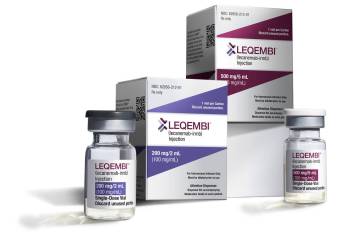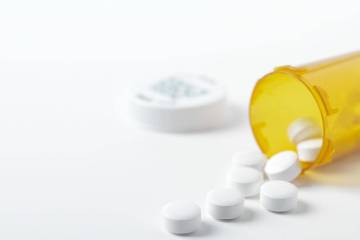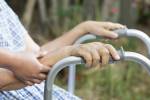Does taking hormones lead to breast cancer?
More than 140 million American women take some sort of birth control, and roughly 6 million women use hormone therapy to reduce debilitating symptoms of menopause. But is it safe?
There are many myths swirling around about hormones and a link to breast cancer. Risks are dependent on a few key things, such as lifestyle and family history, said Dr. Stephani Christensen, medical oncologist-hematologist at Comprehensive Cancer Centers.
The birth control risk has been debated for decades, she said. A study of nearly 2 million Danish women over 10 years found that there is a small increase of breast cancer for women who take oral contraceptives. The study was published in December in the New England Journal of Medicine.
“It is a small risk, but there is a risk,” Christensen said.
For every 100,000 women who regularly take birth control over one year, there is a possibility that 13 in that group may develop breast cancer. Other factors include age and genetics.
The risk of taking birth control increases if there is a family history of breast cancer. The risk also increases with each year that a woman takes birth control, whether oral, injections, intrauterine implants or other hormone forms.
“Generally the risk is that the longer you are on birth control the higher the risk, but, again, it is very small,” Christensen said. “After you are off of it for five years or so, everything returns to normal. Risk is also age dependent, so if you are under age 35, the risk is very, very small compared to if you are older.”
But there are also benefits to taking birth control, aside from reducing the chances of an unwanted pregnancy.
“We see a decrease in ovarian cancer, uterine and colorectal cancers, so it’s a balance,” Christensen said.
Birth control formulas also have evolved in the last decade. High levels of estrogen were an essential part of the birth control formula in the past.
“Only more recently have products tended to be a combination with a lower dosage of estrogen, so there is a lower risk of breast cancer with the current birth control that is available for women,” Christensen said. “If you are under age 35, the risk really doesn’t matter unless you have a heightened risk of breast cancer, such as a very strong family history or if you are a BRCA carrier.”
A test for the BRCA mutation can help a woman make decisions about birth control or other hormonal therapies that could be detrimental.
Menopausal hormone therapy is used to control hot flashes and other annoying symptoms of menopause. Christensen, however, prefers to prescribe menopausal hormone therapy as a last resort.
“That is something I recommend my patients actually avoid unless it is absolutely necessary,” she said. “If they have life-altering menopausal symptoms, I will recommend the smallest dose for the shortest duration of time.”
Currently, there are two main types of menopausal hormone therapy prescribed to patients: estrogen plus progestin and estrogen only.
Estrogen with progestin can raise the risk of breast cancer slightly within the first year. The risk continues to rise with each year the patient takes the estrogen with progestin. The increase in breast cancer risk can be as high as 75 percent, with considerations of the patient’s genetic background.
“Breast cancer can be more aggressive and can occur within two to three years, dependent on the medical history,” Christensen said. Once the hormone therapy is ceased, the risk declines significantly within a year.
The estrogen-only formulas that are prescribed can significantly raise the risk of uterine cancer for the patient, which is why it is mainly prescribed to women who have had a hysterectomy.
“I’ve seen patients come in who have been on estrogen for longer than 10 years,” she said. “They don’t think about it. They may not realize that there is an increased risk the longer you take it.”
Some may stop the menopausal hormone therapy and turn to bio-identical or other natural hormones that are touted as helpful for relieving dry skin and regulating body temperature.
“People can market them any way they want,” Christensen said. “We don’t believe they are any safer.”




























